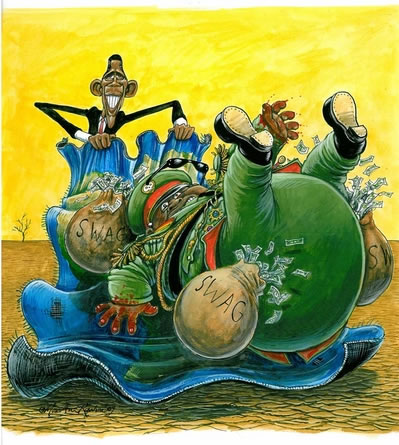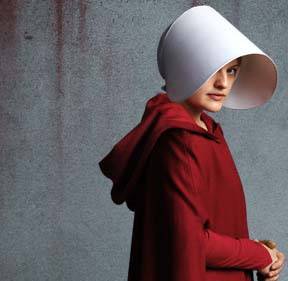 The Obama Administration, and especially the new Secretary of State Hillary Clinton, is rethinking how American power can be used to help the development of the "bottom billion", the people who live in the 60 or so small impoverished countries that in recent decades have economically and politically diverged from the rest of mankind. They've coined a new phrase for their strategy: "smart power". This would not abandon the "hard power" of force, used so disastrously by the Bush Administration, but it would use it, or the threat of it, in strategic combination with the "soft power", or international influence, which was a hallmark of the Clinton administration. Of course, events in Iraq have naturally led many to embrace the view that what is needed is not "smart" intervention but no intervention at all. Natural, perhaps, but mistaken. For although it may be painful to recognise, non-intervention is simply not ethically defensible in the societies which contain the bottom billion people because many of these states have shown themselves structurally unable to provide or maintain accountable government.
The Obama Administration, and especially the new Secretary of State Hillary Clinton, is rethinking how American power can be used to help the development of the "bottom billion", the people who live in the 60 or so small impoverished countries that in recent decades have economically and politically diverged from the rest of mankind. They've coined a new phrase for their strategy: "smart power". This would not abandon the "hard power" of force, used so disastrously by the Bush Administration, but it would use it, or the threat of it, in strategic combination with the "soft power", or international influence, which was a hallmark of the Clinton administration. Of course, events in Iraq have naturally led many to embrace the view that what is needed is not "smart" intervention but no intervention at all. Natural, perhaps, but mistaken. For although it may be painful to recognise, non-intervention is simply not ethically defensible in the societies which contain the bottom billion people because many of these states have shown themselves structurally unable to provide or maintain accountable government.
There is one key reason for this failure which becomes evident when we consider how accountability arose in our own societies. What was critical here, as brilliantly demonstrated by the historian Charles Tilly, was that governments faced external military threats. It was the need for taxation to finance military spending which initially provoked citizens into demanding representation: "no taxation without representation" was not just the slogan of the American Revolution, it was the force that drove accountability more generally. Today, in the societies of the bottom billion, there is no equivalent force. International borders are largely frozen so there is less need for military spending to combat an external threat, while aid and natural resource revenues further reduce the need for such societies to tax their citizens. In the absence of these traditional reasons for demanding representation, the international community has, since the fall of the Soviet Union, tried to short-circuit the process by simply introducing elections. So much so that across the countries of the bottom billion elections are now the norm. Unfortunately, they have not managed to achieve genuinely accountable government.
Of course, in normal circumstances elections do work. In research I conducted with Lisa Chauvet for my book Wars, Guns and Votes we looked at whether elections discipline governments into improving economic policy. They do, but only if the election is well conducted. Most elections in the bottom billion are not well conducted. The reason is simple: illicit tactics, such as ballot fraud and voter intimidation, are the most reliable and effective way for an incumbent to win an election. In the enthusiasm to transform these countries into democracies elections were introduced but without the checks and balances that are vital to ensure that they are fair. To produce truly accountable governments it is those checks and balances that are now needed. But how are these to be enforced?
Realistically, the international community is not going to enforce fair elections by either soft power, such as aid, or hard power, such as military intervention. Aid conditionality has lost all credibility, and there is no appetite to fly in troops each time a president steals an election. Nor are the neighbours going to exert pressure: just look at how African governments have failed to exert effective pressure against Mugabe. There is only one force that presidents genuinely fear and that is their own army. They have every reason to worry. Since 1945 there have been 357 successful military coups globally. In Africa, the one region for which there is a comprehensive tally, in addition to 82 successful coups there have been 109 which have failed, and a further 145 which were nipped in the bud before they were attempted. To date coups have certainly been a menace: they are as likely to oust a democratic government as an autocrat and they create political instability and violence. The western response has routinely been not much more than an unequivocal, lofty condemnation: soldiers must stay in their barracks rather than assume a political role.
It is this state of affairs which has led me to believe that we must review or reverse our wholesale opposition to the coup, and to realise, however counterintuitive it may be, that coups and the threat of coups can be a significant weapon in fostering democracy. In an ideal world the military would have no political role, but in getting towards that ideal it is not smart to remove the only force that might discipline presidential abuse of power. Smart power would try to harness the fear of a coup as a force for good. Here is how it might work.
Routinely, the international community monitors elections, declaring whether they are free and fair. The European Community and the Carter Center have been doing it for years. Yet at present these judgments have no consequences. Smart power would link them to the threat of a coup. An election judged free and fair would trigger an undertaking by the major democracies to use their best efforts to protect the government from a coup. Often this would be quite straightforward because the perpetrators of coups could not withstand even modest external military intervention. If a subsequent election was judged not to be free and fair this undertaking would be publicly lifted. It would be sensible to lift it because, if the army did oust a president who had won an election fraudulently, the international community would not want to be committed to restoring him. But the public lifting of protection would be a signal: in effect it would invite the military to oust the incumbent. Were a coup to take place, the international community could then recognise it, conditional upon monitored elections being held within a set period. In effect, the international community would be providing a guidance system for the previously unguided missile of the coup.
This proposal will provoke howls of outrage about infringements of sovereignty. But the outrage will be misplaced. Where an incumbent president abuses power to steal an election he forfeits the right to non-interference. Further, while historically the major international powers have themselves lacked legitimacy, President Obama is not so burdened. Africans are not just as enthused about Obama as the rest of us, they are proud of him. He is, not unreasonably, seen by Africans as partly African himself. Obama's father was a Kenyan Luo, like Raila Odinga, the opposition candidate in the last Kenyan elections. A prescient quip during the Kenyan elections was that America would have a Luo president before Kenya, and so it has proved. This African identity gives Obama the moral authority to intervene, not of course, to further American interests, but to support the basic tenets of accountable governance. Obama now has at his command an African-based American military force, AfriCom, whose mission statement emphasises its intention to conduct military operations which would help to promote a stable and secure African environment. This is the force which could now be entrusted with the role of putting down coups against properly elected governments. There would be ample opportunity to act in such a way. For example, last year the democratically elected government of Mauritania was ousted in a coup which was condemned by the African Union. The condemnation was without consequence. Had Obama authorised a temporary military intervention to restore the elected government, would this have been an outrageous abuse of sovereignty? If a subsequent president of Mauritania stole an election, would it be an outrage for that protection to be withdrawn?
This is, I think, an example of what smart power might look like. A minimal amount of existing hard power, namely the occasional use of AfriCom to put down a coup, is linked to a more extensive use of existing soft power, namely the monitoring and assessment of elections. Would it work?
Think through one of last year's disasters: the eruption of mass ethnic violence in Kenya following elections that were widely judged to have been unfair. As it was, one of the forces bringing the opponents to a settlement was the fear that the Kenyan army would unseat the government. Had this risk been crystallised by what I have suggested, the calculation of whether to steal the election made by both President Kibaki and Raila Odinga would have looked different. Stealing the election would not have been seen as the surest route to power, it would have been seen as the surest route to a coup.
In case you think this fanciful, remember that the major ambassadors to Kenya would have been reminding both candidates of the consequences of illicit tactics as the election approached. Africa's politicians are not always people of integrity, but, having reached the top in troubled political systems, they are among the shrewdest people on earth. They would, I think, find a coup threat all too credible and adjust their electoral tactics accordingly. In my book I set out in more detail how the link between hard and soft power might work by drawing upon the technique of game theory, in which the consequences of an action are played out step by step. At each step I ask my readers the same question: "So what would you do in this situation?"
It is an invitation I now extend to any indignant readers of this article. Faced with an incumbent president who overrides the wishes of his citizens by stealing an election, what would you do?

